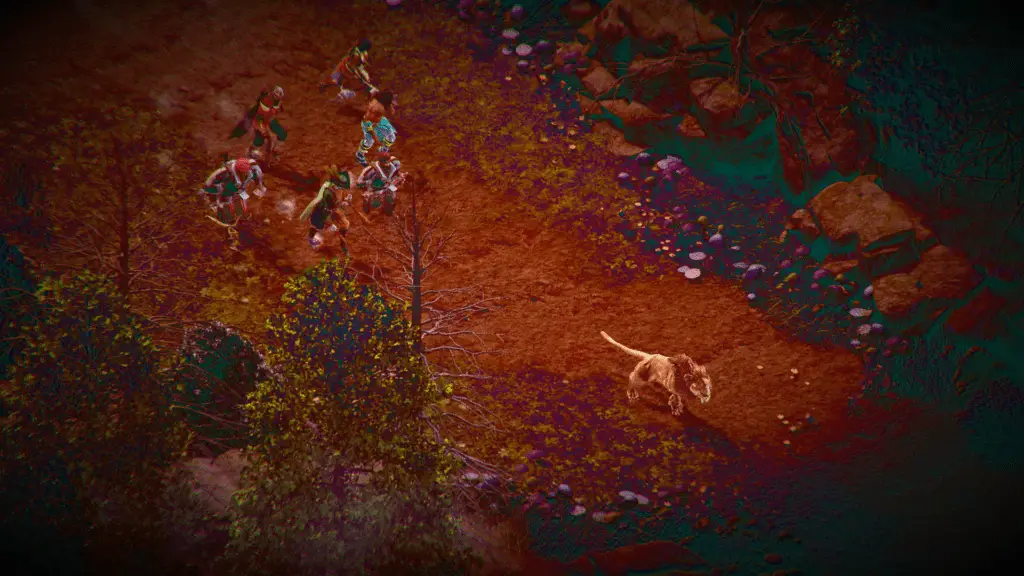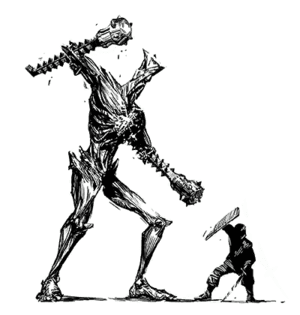Spoilers for Pillars of Eternity and The White March Ahead!
During the Steam summer sale this year, I picked up a copy of Pillars of Eternity II: Deadfire. Since then, I’ve been replaying Pillars of Eternity, trying to get a character ready to import into the sequel. As I played through the first game this time though, I started noticing how some of the dialogue seemed to conflict with what I thought the central theme was. I had my assumptions challenged as I played the game and the expansion more and more often until I realized I was wrong. There wasn’t one central theme of the story, but two. The first one I had already picked up on; ‘Tell the truth in all things’. The second theme is more subtle, but is just as important as the first one. That the memory of an event and how you interpret it is just as important as what really happened.
A Mother’s Grief & An Archaeologist’s Lament
The very first place I noticed this second theme was in conversations with Grieving Mother, a recruitable companion. Grieving Mother is a cypher, a psychic class that can affect characters’ minds. In her case, she creates a glamour over herself. Anyone who looks at her sees a simple village woman and tends to ignore her. Even the player character themselves almost ignores her. The player learns part of the Grieving Mother’s backstory as soon as they meet her, accidentally looking into her memory. The player discovers that she was a midwife and used her abilities to help mothers deliver healthy children.
As the player learns more of her backstory, they discover that she once believed herself to be a Watcher—a person who can read people’s souls. Because of this, many of the women she helped would come to her later and ask her to read their child’s future. Since she couldn’t read the future, she read the mother’s mind, and told the mothers what they wanted to hear.
At this point, the player can call the Grieving Mother out, telling her that lying to these women is wrong. She’ll angrily snap back at the player, telling them that many of these women were very nervous. That telling them the truth would cause the mothers to drown their infants in a well or pond. That after she started telling them what they wanted to hear, no babies were murdered. Is the ‘truth’ really worth a drowned infant? And it’s a hard question to answer, no matter your personal opinion on the subject.
Of course, later on the player learns she took this belief to an extreme, and caused a mother to accidentally kill herself nursing a dead child. The grief from this event leads her to completely block these memories, and at the end of her personal quest line, it’s up to the player to decide whether or not to reveal the truth of what happened to her. Revealing the truth gives the player the arguably ‘good’ ending for her once the game ends, but the option to just have her forget is there. And the game itself doesn’t judge one way or the other. It’s up to the player to decide the morality of it.
While learning more about Grieving Mother and her backstory, the player can also engage in a bit of revisionist memory making themselves with another companion, Kana Rua. Kana is from Rauatai, an up and coming naval power that is now facing a debate about its future. Should the country turn inward and concern itself only with the good of the nation itself? Or, should it become more open and welcome foreign influence? Kana, being a member of the bard’s college and very well educated, wants the latter but is not sure how to influence the rest of his countrymen to see it his way. That is until he discovered that the Tanvii ora Toha, a highly influential work in Rauatai, was actually based on a far older work from a previous civilization, the Engwithans.
Starting with this scrap of knowledge, Kana travels from his homeland to where the game takes place, eventually meeting the player and requesting their help in finding the proof he needs. Unfortunately, when the player finally discovers the original copy of the Tanvii ora Toha, it’s destroyed. Only a few tiny scraps are left. Certainly not enough to convince anyone it’s legitimate. During the quest, Kana began questioning if the Engwithan civilization that created the Tanvii ora Toha is even worth emulating. At this stage of the quest the player can discourage his hopes for a better future for his country—causing him to return home and renounce his previous beliefs—or tell him that the origin and the truth of the tablet doesn’t really matter. The fact that it existed at all outside of Rauatai should be enough to convince his people that they should welcome ideas from foreign lands.
This gives Kana a better ending, but more than that, the similarity of this response to what Grieving Mother was doing struck me. After all, does the truth matter if your choice leads to a better outcome? If so, how does it matter?
A Monk’s Regrets
The expansion DLC for Pillars of Eternity is called The White March, and is divided into two different parts. In the first part, after fending off a wave of monsters attacking a village the player is called over to investigate something inside a barrel of fish. As the player approaches, they discover that it’s not a monster, but a man meditating in a barrel of fish. This is Zahua, a monk, and one of the new companions for the DLC. He is, in his own words, the last of the Tacan.
The Tacan were an agrarian tribe threatened by a violent neighbor, the Quechmatl. Zahua was prophesied to be the one to lead a victory against the Quechmatl. But when the time finally came, doubt entered his mind and he faltered. Because of that, his tribe became slaves and he ended up captured and tortured. The torture was enough to help him to temporarily reach Anitlei, a type of enlightenment, and he escaped. As he left he vowed to return and liberate his people. During the second part of the expansion, Zahua decides to undergo a vision quest. He believes this will let him fully master the Anitlei and thus liberate his people. He asks for the player’s help during the ritual.

During the vision quest though, Zahua finally realizes a truth that he has known for years now: the Tacan culture is dead. It’s men are all dead and it’s women married off and raising Quechmatl children now. At this point the player can influence how Zahua views this knowledge, like they did with Kana. They can tell Zahua that the Tacan are truly dead and he needs to move on, that the Tacan exist still with Zahua, or that since he is the only one left, he must honor the memory of the Tacan.
These produce wildly different outcomes for Zahua. From encouraging him to return to his homeland and band together smaller tribes to defend themselves, to writing everything down about the Tacan and leaving it in a library to share with the world, or to starting a new monastic order so that the teachings of the Tacan are never forgotten. In any event, the point of that quest is rather clear: What we make of our memories changes depending on how we view them. Something that takes on an even more important meaning in the main quest of The White March.
A Gods Rebirth
The White March is an interesting DLC. The first part consists of a fairly basic quest (Try to find a way into a fortress and reactivate an ancient forge) and the first part of the second half a mystery (Who or what is attacking them?). Eventually, the player discovers that creatures called The Eyeless are behind the attacks on the forge. They serve Ondra, the goddess of loss, forgetting, and of the ocean. They received orders from Ondra to destroy they forge so that no one can relearn its secrets.

Near the very end of the expansion the player discovers the final piece of the puzzle. The Eyeless were originally servants of Abydon, god of duty, preservation, progress, and industry. When the gods decided to destroy the the Engwithan civilization—out of a sense of self-preservation, and to keep the secret of their origin hidden—Abydon refused to help, and sacrificed his bodily form to preserve the majority of the Engwithan cities, if not the people. When he reformed (building a metal body for himself), he had lost both his memory and his ability to persevere. The Eyeless could restore him to full strength, but up until then they had been unable to.
Here the player has few options. They can either destroy The Eyeless forever, causing Abydon to never remember what happened to him. Or they can restore his memories unaltered, and all the pain and anger that comes with them. There is a third option, however. The player (after beating a very tricky dialogue tree) can convince The Eyeless to restore Abydon and his memories, but provide context for them. Show the god that there was more going on than what he remembers. This not only restores Abydon to his full potential but provides the best possible ending for the people still living and working at the forge.
Memories Of The Truth
It would have been easy for Pillars of Eternity to simply make the moral of the game that the truth is only what happened and believing anything else is foolishness. Other games have done something similar and have been well received. It’s to the game’s credit, then, that it doesn’t take this easy route. Instead, it shows the player that there is more to the truth than exactly what happened. A person’s experiences, beliefs, biases, and the situation that they are in all change what exactly they perceive as the truth. It’s a hard enough lesson to learn in real life, and it surprised me to see it in a game. Surprised, but very grateful that it did. It is something more games should do, or at least attempt.

